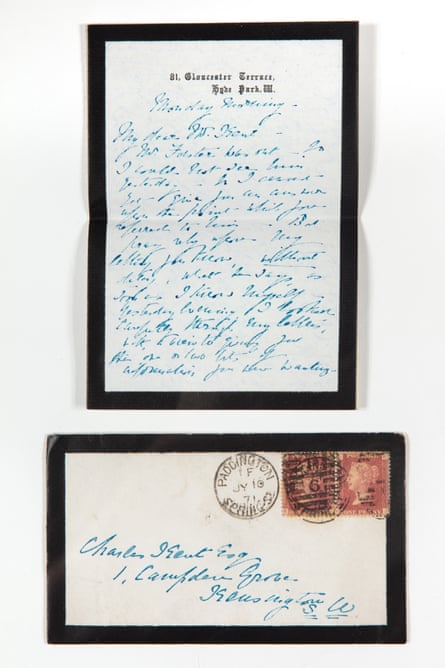Sister-in-law’s letters provide insights into Charles Dickens’ life and legacy
Parts of an extensive collection of letters from Dickens’ relative and housekeeper Georgina Hogarth reveal her role in the making of a literary giant
Kate McCusker
Wednesday 7 February 2024
A collection of letters from one of Charles Dickens’ most valued confidantes will go on display in London for the first time this week to mark 212 years since the literary giant’s birth.
The letters were written by Dickens’ sister-in-law turned housekeeper and executor Georgina Hogarth, who was instrumental in preserving the author’s legacy after his death in 1870.
Acquired by the Charles Dickens Museum, the correspondence offers an illuminating insight into a woman who “had a huge impact both within Dickens’ life and after it”, said Emma Harper, a curator at the museum.

The extensive correspondence – a small portion of which will go on public display – was written by Hogarth to journalist Charles Kent between 1867 and 1898. It discusses Hogarth’s “unbearable” grief after Dickens’ death as well as her great admiration for the man.
“We’re hoping the letters provide some insight into Dickens’ personal life and Hogarth’s role in it,” said Harper, who is in the process of deciphering the 120-strong collection at a rate of around six letters a day. “It’s also just lovely to have Georgina’s own words because women, at this point in time, were not recorded quite so well.”
Hogarth lived with Dickens for 28 years and bore witness to some of the most significant events in his private life – namely, his separation from her sister Catherine, whom he left for 18-year-old actor Ellen Ternan in 1858.
Alongside biographer John Forster, she was an executor of Dickens’ will, and was responsible for distributing his estate. She also co-edited three volumes of letters with the author’s daughter Mamie, whom she had been involved in raising, alongside the nine other Dickens children.
“For us the key thing is to find out more about Georgina’s life and her relationship with Dickens, exploring their friendship and the role of women within the household of this very famous writer,” added Harper. “The letters will add a great deal to research about her.”
Writing to Kent on Dickens’ birthday on 7 February 1871 – the first after his death – Georgina expressed that life without her companion was “very very hard to bear” and that she wished to die. She caveated: “I know he is happy and blessed and indeed I do not think I would recall him to this dark world if I could.”
A small selection of the letters will be on display in the study of Dickens’ former home at 48-49 Doughty Street in London. The letters had been in a private collection since 1999 and were bought at auction by the museum for £6,048 in December, using funding from a V&A Purchase Grant and Arts Council England.
The museum’s current exhibition focuses on another of Dickens’ most significant relationships – his long-running friendship with novelist Wilkie Collins.



No comments:
Post a Comment